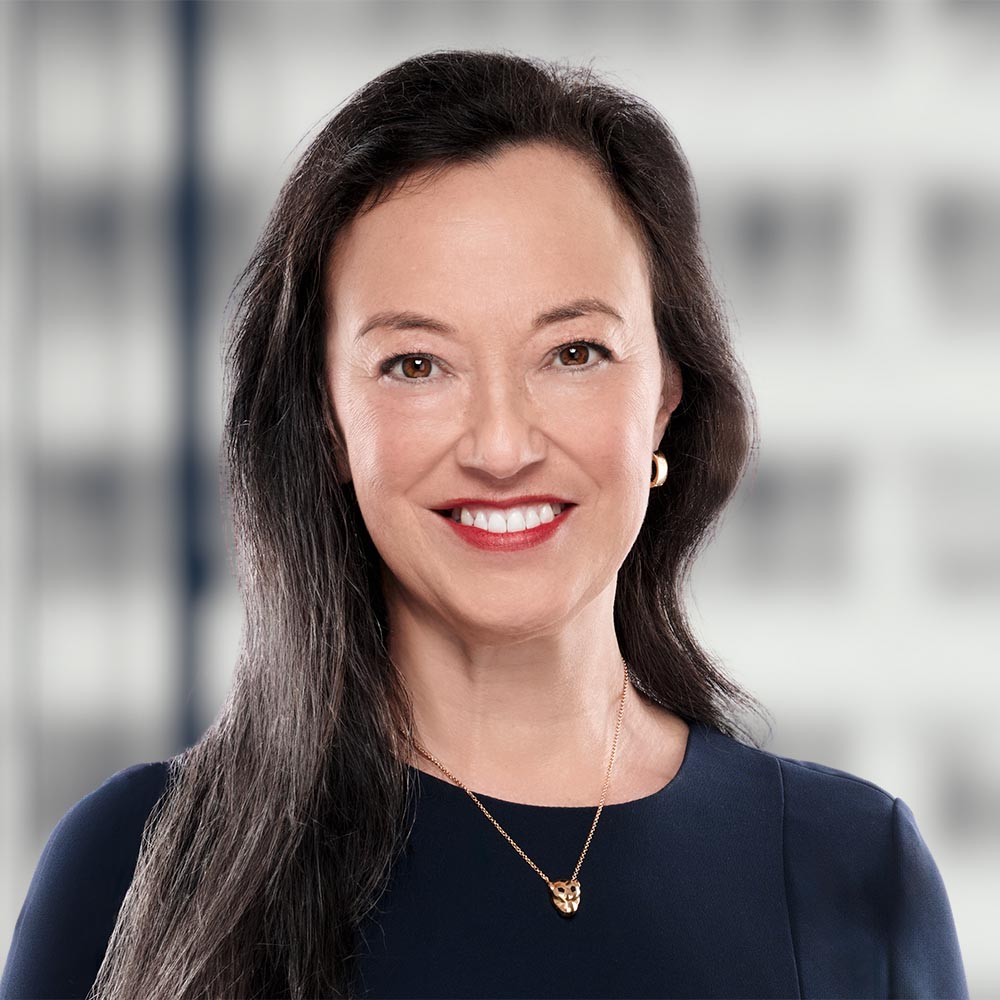Federal Reserve announces details of Main Street Lending Program
The Federal Reserve Bank (Federal Reserve) has released the preliminary details of two new loan programs created under the Main Street Lending Program established by the Coronavirus Aid, Relief, and Economic Security Act (CARES Act). The two Main Street programs—the Main Street New Loan Facility (MSNLF) and the Main Street Expanded Loan Facility (MSELF)—will make up to $600B of loans available to small- and medium-sized businesses impacted by the COVID-19 pandemic.
Under the MSNLF, eligible borrowers will be able to access new unsecured term loans of up to $25 million, while the MSELF will support upsize tranches of existing term loans of up to $150 million.
In this bulletin we discuss eligibility requirements for borrowers and lenders under the Main Street programs, together with the practical considerations and implications for private equity sponsors seeking to avail themselves of loans under these programs.
Who is eligible for a loan under the Main Street programs?
“Eligible Borrower” is defined the same for both Main Street programs:
- An Eligible Borrower is a business with either up to 10,000 employees or 2019 annual revenues up to $2.5B. Unlike the affiliation rules that apply to the SBA’s Paycheck Protection Program, there is no requirement for the employees of affiliates under common control to be taken into account in calculating the number of employees.
- An Eligible Borrower is a business that is created or organized in the U.S. or under the laws of the U.S., accordingly a U.S. subsidiary of a foreign entity is permitted to participate if it is otherwise eligible.
- An Eligible Borrower has significant operations in the U.S. and a majority of its employees are based in the U.S.
- An Eligible Borrower may not participate in both the MSNLF and MSELF, nor may it participate in either of the Main Street programs and participate in the Primary Market Corporate Credit Facility.
- An Eligible Borrower may receive a loan under a Main Street program as well as under the SBA’s Paycheck Protection Program.
- The Federal Reserve’s announcement further specifies that the Main Street programs will support businesses that were in good financial condition prior to the COVID-19 crisis.
Who is eligible to participate as a lender in the Main Street programs?
- “Eligible Lenders” are U.S. insured depository institutions, U.S. bank holding companies, and U.S. savings and loan holding companies. An Eligible Lender must attest that it will not use the Main Street program loan to refinance or repay the Eligible Borrower’s existing loan balances, that it will not cancel or reduce any existing lines of credit outstanding to the Eligible Borrower, and that the borrower is eligible to participate in the Main Street loan program, including in light of the conflict of interest provisions under the CARES Act (detailed below).
- A Federal Reserve-created special purpose vehicle will purchase 95% participations in each loan made under the Main Street programs, and the Eligible Lender will retain 5%, sharing risk on a pari passu basis.
Key terms of the loans
|
|
Main Street New Loan Facility |
Main Street Existing Loan Facility |
|
Minimum loan |
$1 million |
|
|
Maturity |
4 years |
|
|
Interest rate |
Adjustable; Secured Overnight Financing Rate (SOFR) + 250-400 basis points |
|
|
Deferral |
1-year deferral of amortization of principal and interest |
|
|
Prepayment |
Permitted without penalty |
|
|
Loan origination / upsize fee |
Origination / upsize fee of 100 basis points of the principal amount of the loan / upsize tranche |
|
|
Servicing fee |
The Federal Reserve’s special purpose vehicle will pay the eligible lender 25 basis points per annum of the principal amount of its participation in the loan / upsize tranche |
|
|
Facility termination |
Unless extended by the Federal Reserve, will close to new participations September 30, 2020 |
|
|
Eligible loan |
An unsecured term loan originated on or after April 8, 2020 |
An upsize tranche originated after April 8, 2020 of a term loan originated before April 8, 2020 |
|
Maximum loan |
Lesser of a) $25 million; and b) an amount that, when added to the Eligible Borrower’s existing outstanding and committed but undrawn debt, does not exceed four times the Eligible Borrower’s 2019 EBITDA |
The lesser of a) $150 million; b) 30% of the Eligible Borrower’s existing outstanding and committed but undrawn bank debt; or c) an amount that, when added to the Eligible Borrower’s existing outstanding and committed but undrawn debt, does not exceed six times the Eligible Borrower’s 2019 EBITDA |
|
Facility fee |
Facility fee of 100 basis points, payable by the Eligible Lender to the Federal Reserve’s special purpose vehicle. The facility fee may be passed on to the Eligible Borrower |
No facility fee |
|
Security |
Unsecured |
Any collateral securing the original loan, whether pledged under the terms of the original loan or at the time of upsizing, will secure the upsize tranche on a pro rata basis as between the Eligible Lender and the Federal Reserve’s special purpose vehicle |
Are Main Street program loans eligible for forgiveness?
In contrast to loans under the SBA’s Paycheck Protection Program, the CARES Act expressly prohibits loans under the Main Street program from being reduced through forgiveness. The Main Street program is intended to provide liquidity to companies in support of their operations, as compared to Paycheck Protection Program loans which are intended to ensure continued employment in the short term.
MSELF in practice for private equity
MSELF loans are aimed toward larger companies with an existing term loan facility that are looking to upsize their existing debt. Given that the size limits for eligibility do not require the aggregation of employees among affiliated companies, private equity sponsors in particular should consider whether their portfolio companies can take advantage of this program.
However, the practical application of certain Main Street program rules highlights potential problems with the program. For example:
- Direct lenders. The definition of Eligible Lenders under the Main Street program excludes direct lenders. Therefore, if the lender group for the existing loan includes a non-bank lender, the existing loan will not be eligible under the MSELF for an upsize tranche.
- EBITDA test. MSELF loans are limited in amount to the lesser of: a) $150 million; b) 30% of the Eligible Borrower’s existing outstanding and committed but undrawn bank debt; or c) an amount which, when added to the Eligible Borrower’s existing outstanding and committed but undrawn debt, does not exceed six times the Eligible Borrower’s 2019 EBITDA. The latter prong is expected to be problematic for many borrowers, as “EBITDA” is not currently defined to allow the types of adjustments that borrowers typically rely on to improve their leverage ratio. As a practical matter, it would be challenging for the Federal Reserve to define adjustments that work equally for all borrowers and so it is not expected that add-backs will be allowed.
- Interest rate. Interest on the loans is to accrue based on SOFR, but SOFR has not yet been widely adopted in the loan markets. This potential issue also affects the MSNLP.
Private equity sponsors should also be aware that the Main Street program imposes certain operational restrictions on Eligible Borrowers, including restrictions on compensation, as further detailed below.
Considerations for Eligible Borrowers
In determining whether to apply for a loan under a Main Street program a company should consider the attestations and undertakings required to be made by Eligible Borrowers (Torys previously reported on the certifications required by the CARES Act):
- Eligible Borrower will use the loan proceeds to retain at least 90% of its workforce, at full compensation and benefits, until September 30, 2020;
- Eligible Borrower intends to restore at least 90% of its workforce that existed as of February 1, 2020, and all compensation and benefits to its workers, no later than four months after termination of the COVID-19 public health emergency;
- Eligible Borrower is not a debtor in a bankruptcy proceeding;
- until two years after loan repayment, Eligible Borrower will not outsource or offshore jobs or abrogate existing collective bargaining agreements; and
- Eligible Borrower will remain neutral in any union organizing effort for the term of the loan.
In addition, the Main Street programs require attestation from the Eligible Borrower that:
- Eligible Borrower requires financing due to the exigent circumstances presented by the COVID-19 pandemic, and that, using the proceeds, it will make reasonable efforts to maintain its payroll and retain its employees during the term of the program loan / upsize tranche.
- Eligible Borrower meets the applicable EBITDA leverage condition listed in the table above.
- Eligible Borrower will not:
- use the Main Street program loan to refinance existing debt or repay existing loan balances;
- repay loans of equal or lower priority other than mandatory principal payments until the Main Street program loan is repaid in full; or
- seek to cancel or reduce any of its outstanding lines of credit.
- Eligible Borrower will follow the restrictions on compensation, stock repurchase and capital distributions under section 4003(c)(3)(A)(ii) of the CARES Act, which are:
- Restriction on capital distributions and share repurchases: Until one year following repayment of the Main Street program loan, the Eligible Borrower will not:
- pay dividends or make other capital distributions with respect to its common stock; or
- repurchase any of its or its parent company’s equity securities listed on a national securities exchange, except as required under a contractual obligation outstanding as of the enactment of the CARES Act.
- Limitations on employee compensation: Until one year following repayment of the Main Street program loan:
- no officer or employee of the Eligible Borrower whose total 2019 compensation exceeded $425,000 (excluding employees covered by collective bargaining agreements) may receive 1) total compensation for any 12-month period exceeding their total 2019 compensation, or 2) termination benefits worth more than two times their total 2019 compensation; and
- no officer or employee of the Eligible Borrower whose total 2019 compensation exceeded $3 million may receive total compensation for any 12-month period exceeding the sum of $3 million and 50% of the amount by which their total 2019 compensation exceeded $3 million.
- Restriction on capital distributions and share repurchases: Until one year following repayment of the Main Street program loan, the Eligible Borrower will not:
- Eligible Borrower is eligible to participate in the Main Street program, including in light of the conflicts of interest provision of the CARES Act prohibiting any entity in which the U.S. President, Vice President, any head of an Executive department or any member of Congress holds a controlling interest from receiving any economic support under the Coronavirus Economic Stabilization Act of 2020 provisions of the CARES Act.
Next steps
The terms of the Main Street programs are subject to additional guidance from the U.S. Treasury and the Federal Reserve. As the Federal Reserve prepares to launch the Main Street programs, it is seeking feedback from potential lenders, borrowers and other stakeholders through its website feedback form until April 16, 2020. A company that believes it is an eligible borrower should contact its bank representative in preparation for applying in advance of the launch of the program, particularly in light of the difficulties recently experienced by applicants to other CARES Act relief programs.
Read all our coronavirus-related updates on our COVID-19 guidance for organizations resource page.
To discuss these issues, please contact the author(s).
This publication is a general discussion of certain legal and related developments and should not be relied upon as legal advice. If you require legal advice, we would be pleased to discuss the issues in this publication with you, in the context of your particular circumstances.
For permission to republish this or any other publication, contact Janelle Weed.
© 2025 by Torys LLP.
All rights reserved.


